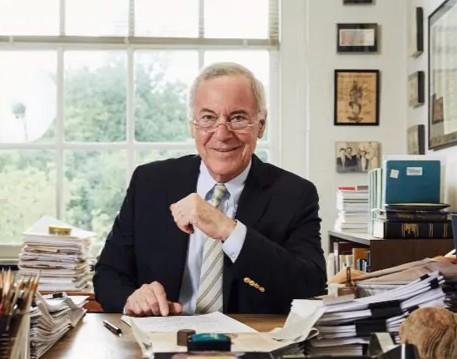
Trump Destroying Himself, PM Modi Should Keep His Cards Close to Chest: US Economist
The ongoing trade war between the United States and several countries, including India, has been a topic of much debate and concern. While some have argued that the tariffs imposed by the US President Donald Trump will have a significant impact on the global economy, others have questioned the effectiveness of this strategy. One American economist, Steve Hanke, has recently weighed in on the issue, saying that Trump is destroying himself by imposing tariffs on countries like India, and that Prime Minister Narendra Modi should keep his cards close to his chest.
In a recent interview, Hanke stated that the key to navigating the current trade tensions is to follow Napoleon’s advice: “Never interfere with an enemy in process of destroying oneself.” According to Hanke, Trump is indeed destroying himself by imposing tariffs on countries like India, and that the Indian government should not react impulsively to these measures.
Hanke’s comments came as a response to the recent announcement by the US government that it would impose tariffs on Indian goods worth $6 billion. The move was seen as a retaliatory measure against India’s decision to impose tariffs on certain American goods. Hanke believes that Trump’s actions are a sign of desperation and that the Indian government should not fall into the trap of reacting impulsively.
Instead, Hanke suggests that the Indian government should wait for Trump’s “house of cards” to collapse. According to him, the tariffs imposed by Trump are a sign of weakness and that the US economy is already showing signs of strain. Hanke believes that the Indian government should not engage in a trade war with the US, but rather wait for the situation to unfold.
Hanke’s comments are significant because he is a well-known economist with a strong background in international trade and finance. As a professor of applied economics at Johns Hopkins University, Hanke has written extensively on the topics of trade, globalization, and economic development. His views on the current trade tensions are therefore worth considering.
Hanke’s comments are also significant because they offer a different perspective on the current trade tensions. While many have argued that the tariffs imposed by Trump are a necessary measure to protect American industries, Hanke believes that they are a sign of weakness and that the US economy is already showing signs of strain. His views offer a nuanced perspective on the issue and suggest that the Indian government should be cautious in its response to the tariffs.
So, what does Hanke’s advice mean for the Indian government? In essence, he is saying that the Indian government should not engage in a trade war with the US, but rather wait for the situation to unfold. This means that the Indian government should not react impulsively to the tariffs imposed by the US, but rather take a step back and assess the situation.
Hanke’s advice is also significant because it suggests that the Indian government should not underestimate the impact of the tariffs on the Indian economy. While the tariffs imposed by the US may not have a significant impact on the Indian economy in the short term, they could have longer-term consequences. For example, the tariffs could lead to a decline in Indian exports to the US, which could have a negative impact on the Indian economy.
In conclusion, Hanke’s comments offer a nuanced perspective on the current trade tensions between the US and India. He believes that Trump is destroying himself by imposing tariffs on countries like India, and that the Indian government should keep its cards close to its chest. Instead of engaging in a trade war with the US, Hanke suggests that the Indian government should wait for Trump’s “house of cards” to collapse. His views are significant because they offer a different perspective on the issue and suggest that the Indian government should be cautious in its response to the tariffs.






